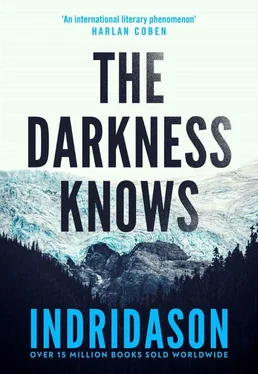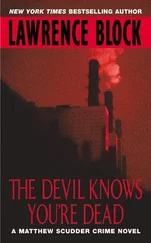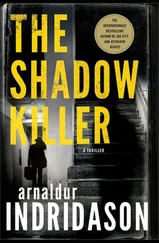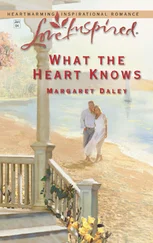He lowered his head, clutching his jacket tightly around his skinny frame, and set off into the blizzard. The snow immediately started settling on his clothes, and in no time at all he was freezing and cursing the fact he hadn’t put on his work overalls, which were thickly lined enough to protect him from anything the elements could throw at him. On winter mornings it could be hard to leave the warm hut for the exposed construction site, but two mugs of coffee, a cigarette and the blue overalls all helped. It wasn’t complicated. Simple pleasures — you just had to know how to appreciate them. Football and a cold beer. Coffee and a ciggie. And thick overalls in winter.
He moved quickly but unsteadily along the pavement, his thoughts as erratic as his footprints in the snow.
He’d thought the guy looked vaguely familiar as they sat chatting at the bar, but it had taken a while for the penny to drop. The lights were low and the guy had been wearing a baseball cap and kept his head down. They’d exchanged a few remarks about the game and discovered that they both supported the same team. In the end, unable to restrain himself, he’d started talking about Öskjuhlíd and asked the man straight out if it had been him he ran into there. Asked if he remembered that evening too.
‘No,’ the man said. But the glance he shot him from under his cap removed all doubt that it was him.
‘It was you, wasn’t it?’ he exclaimed, pleased and incredulous. ‘It was you! Don’t you remember me? I can’t believe it! Did the cops ever talk to you?’
Instead of answering, the man ducked his head even lower.
But he wouldn’t let go of the subject. He told the man how he’d gone to the police about it several years ago but they hadn’t taken any notice of him. The cops had received a million tip-offs and he’d only been a boy when it happened, so maybe it was –
‘Leave me alone,’ the man muttered.
‘What?’
‘I don’t know what you’re on about,’ the man said angrily. ‘Just leave me alone!’ Then he got up and stamped out of the bar.
He’d been left sitting there, hardly able to get over the coincidence that it was the same guy. He was still marvelling at the fact when he staggered outside himself a few minutes later and headed for home. By the time he reached Lindargata, the snow was so impenetrable that he could barely make out the next street light as he hurried across the road, thinking that he would have to inform the police as soon as possible. Just as he was about to reach the other side, his befuddled senses registered that he was in danger. His surroundings were lit up by a sudden dazzling glare, and over the noise of the wind he heard the roar of an engine approaching at speed. The next moment he was flying through the air, an agonising pain in his side, then he crashed down head first onto the pavement that had been swept clear of snow by the storm.
The booming of the engine receded and everything grew quiet again, apart from the screaming of the wind. But the blizzard went on raging all around him, the stinging flakes pelting his exposed flesh and penetrating his jacket. He couldn’t move, his whole body was a mass of pain, his head worst of all.
He parted his lips to call for help but couldn’t emit a sound.
Time passed but he was no longer aware of it. He couldn’t feel the pain any more, or the cold. The alcohol had dulled his senses. His thoughts drifted back to the man in the sports bar, then even further back in time to the hot-water tanks on Öskjuhlíd hill, where he’d loved to play, and the incident he’d witnessed there as a boy.
He was absolutely sure. They’d met once before.
It had been the same man.
There was no doubt in his mind.
Konrád opened his eyes at the sound of his mobile phone ringing. He hadn’t been able to get to sleep, but that was nothing new. Pills, red wine, rather aimless meditation — nothing made any impression on his insomnia.
He couldn’t remember where he’d put his phone. Sometimes it was on the bedside table, sometimes in a trouser pocket. Once he’d lost it for several days, only to find it at last in the boot of his car.
He got out of bed, went into the sitting room, then followed the sound to the kitchen, where the phone was lying vibrating on the table. Outside, the autumn night was pitch-black.
‘Sorry, Konrád, I know I’ve woken you,’ whispered a female voice at the other end.
‘No, you haven’t.’
‘I think you should come over to the mortuary.’
‘Why are you whispering?’
‘Am I?’ The woman cleared her throat. Her name was Svanhildur and she was a pathologist at the National Hospital. ‘Haven’t you heard the news?’ she asked.
‘No,’ Konrád said, wide awake now. He had been going through some of his father’s old papers and this time his insomnia could partly be blamed on that.
‘They brought him in at around eight o’clock,’ Svanhildur said. ‘They’ve found him.’
‘Found him? Who? Sorry, who are you talking about?’
‘Some German tourists. On Langjökull. He was in the ice.’
‘On Langjökull?’
‘It’s Sigurvin, Konrád! Sigurvin’s turned up. They’ve found his body.’
‘Sigurvin?’
‘Yes.’
‘Sigurvin! No, it... what are you talking about?’
‘After all these years, Konrád. It’s quite incredible. I thought you might want to see him.’
‘Is this some kind of joke?’
‘I know it’s hard to believe but it’s him. Beyond a doubt.’
Konrád was floored. Svanhildur’s words seemed to be coming from a long way off, as though from deep in some bizarre dream that had faded from his consciousness. They were words he’d never expected to hear. Not now. Not after so much time had passed. But, on another level, it felt as if he had always been expecting this phone call. Waiting for this news out of the distant past that continued to haunt him like a shadow. Yet now that the news had finally come, he was utterly thrown.
‘Konrád?’
‘I can’t believe it,’ he said. ‘ Sigurvin? They’ve found Sigurvin?’ He sank into a chair at the kitchen table.
‘Yes. It’s definitely him.’
‘German tourists, you say?’
‘On Langjökull. There were some experts on earlier, saying the glacier’s shrunk substantially since Sigurvin vanished. Don’t you ever listen to the news? It’s the greenhouse effect. I thought you might want to see him before everything kicks off tomorrow morning. The ice has preserved him uncannily well.’
Konrád was dazed.
‘Konrád?’
‘I’m still here.’
‘You won’t believe how good he looks.’
Konrád pulled on his clothes in a stupor. He threw a glance at the clock on his way out to the car: it was nearly three in the morning. He threaded his way through the empty streets, heading west towards the centre from his home in the suburb of Árbær, on the eastern edge of the city. Svanhildur had been at the National Hospital for more than thirty years. They’d known each other a long while, having worked on various cases together during his time as a detective in CID, and he was grateful to her now for the heads-up. As he drove, he thought about the glacier and Sigurvin and all the long years that had passed since his disappearance. They had dragged harbours, combed beaches, searched ditches, buildings, cars and volcanic fissures, but it had never crossed anyone’s mind to scour the country’s ice caps. Konrád thought back to all the people the police had interviewed over the course of the inquiry but couldn’t remember a single connection to glacier tours.
He turned onto Miklabraut, the city’s main artery, without meeting another car. Although he and Erna had moved into the small terraced house in Árbær in the early 1970s, he had never really felt at home there. He was a city boy who had grown up in the centre, in the old neighbourhood evocatively known as the Shadow District. Erna had been contented with the move, though, and so had their son, who had gone to a decent school in the new suburb and made friends with whom he invented imaginary worlds in the green area between the ski slope on Ártúnsbrekka and the Ellidaár Valley. Konrád, on the other hand, found the place too suburban, complaining that it was so cut off from everywhere else, it felt like being marooned on an island in Greater Reykjavík. He didn’t like the convenience-store culture that he used to grumble was the only culture of any kind in the area. Nowhere in the country, he reckoned, did people eat more Lion bars, judging by the wrappers that littered the streets. When Erna got fed up with his moaning, he grudgingly admitted that the natural beauty of the wooded valley between the Ellidaár rivers went a long way towards compensating for the ugly dual carriageway that sliced across the hillside at Ártúnsbrekka, with its infernal fumes and noise.
Читать дальше












